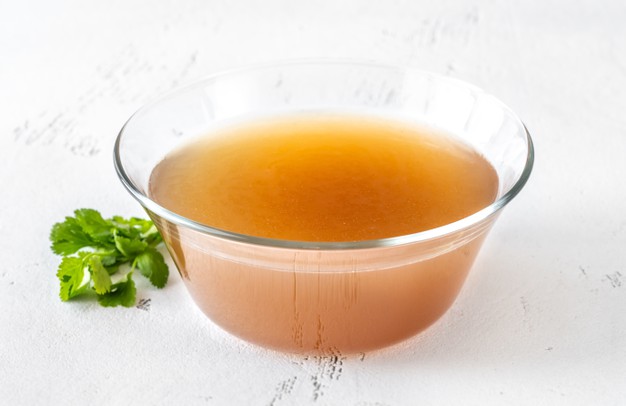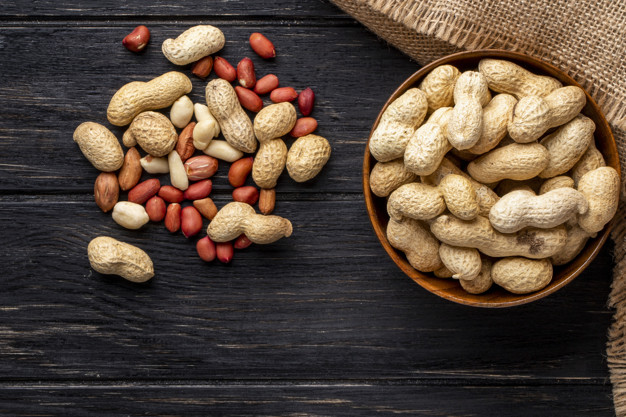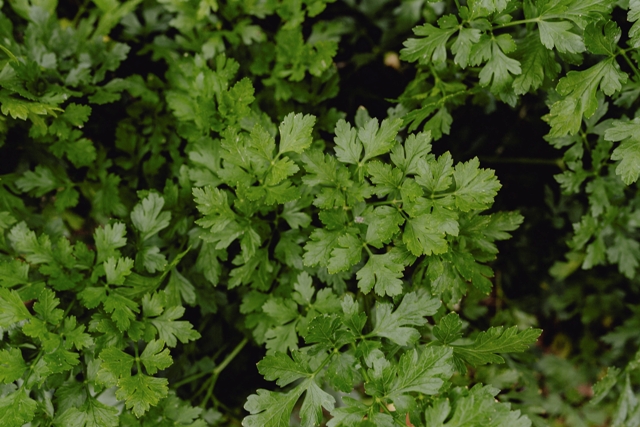Ginkgo biloba is an important tree native to China. It is considered as one of the most ancient plants thus it is also referred as living fossil. It has been traditionally used in Chinese medicine for various medicinal purposes. It offers several nutritional advantages as well
Biological activity
Antioxidant activity
- It is loaded with flavonoids and terpenoids, which are accountable for exerting antioxidant activity and its antioxidant property, is considered as one of the most important reasons behind many of its health claim
- It plays vital role in combating free radicals and helps to protect the body from their harmful effects
- Basically free radicals are referred as highly reactive particles, which are produced within the body during metabolism. These are accountable for damaging various organs of the body and subsequently hinder the activity of respective organs, which ultimately increases the risk of developing various chronic diseases. Its consumption is extremely helpful for decreasing the prevalence of free radical induced oxidative damages as a result it helps in promoting wellbeing
- It is also associated with protecting the body from the detrimental effects of reactive oxygen species
- It helps to prevent lipid peroxidation as well
- Moreover it is very beneficial for reducing the risk of developing chronic diseases as it helps in preventing oxidative stress

Anti-inflammatory activity
- We all know that inflammation is the natural response of the body against injury or infections but it has seen that prolong inflammatory responses are accountable for developing various diseases like arthritis, irritable bowel syndrome, cardiac disorders etc thus it is better to delay the onset of inflammatory events within body in order to reduce the susceptibility of developing chronic inflammatory diseases
- It is better to include Ginkgo Bilob in diet because it helps in decreasing the concentration of inflammatory markers in body, which are responsible for triggering inflammation within body

Anti-carcinogenic activity
- It plays vital role in decreasing the prevalence of carcinoma as it exerts potent anti-carcinogenic activity
- Its oxidative stress reducing capacity is also considered as one of the most important features for decreasing the susceptibility of cancers
- It helps to prevent the damages of DNA and reduces the prevalence of gene mutation too, which are also recognized as a vital measure for decreasing the risk of developing cancers
- It also helps in inducing apoptosis, which plays important role in hindering the growth of malignant cells within body
Health benefits
Role on nervous system

- Consumption of ginkgo is very helpful for promoting the health and activity of both central and peripheral nervous system
- Its antioxidant activity is accountable for protecting every nerve cell from damages thus enhances their functions
- Its anti-inflammatory activity is also associated with delaying neuro-inflammatory events within body as a result helps in decreasing the susceptibility of developing neurological disorders
- It plays vital role in preventing dementia
- It helps in preventing Alzheimer’s disease as well
- It is associated with improving blood flow to the brain thus helps in improving brain functions and also helps in preventing age related cognitive decline
- It helps to improve memory and also helps in improving attention span and attention capacity
Role on circulation
- Its consumption is closely related with enhancing blood flow, which ultimately helps in promoting circulation
- It is very useful for improving the supply of oxygen, nutrients and various other important substances like hormones, enzymes etc throughout the body
- As it is related with increasing blood flow thus its consumption is thought to be very effective for preventing hypertension too
Role on mental health
- It has been extensively used as an important therapeutic substance for promoting mental health
- It significantly improves the symptoms of Psychiatric Disorders
-
 It has been traditionally used for preventing anxiety. Its antioxidant activity is considered as the main factor responsible for decreasing anxiety symptoms
It has been traditionally used for preventing anxiety. Its antioxidant activity is considered as the main factor responsible for decreasing anxiety symptoms - It is also associated with reducing stress level as it helps in exerting a calming effect. On the other hand its anti-inflammatory activity is also linked with decreasing the stress level as it helps to make the body able to cope when stress hormone levels are high
- Consumption of ginkgo extract or its supplements is also accountable for treating the symptom of depression
- Its consumption helps to improve mood as well

Role on eye health
- Its consumption is very useful for promoting overall eye health and all the credit goes to its phytochemical components
- Its consumption is also very effective for promoting vision
- It is considered as an important preventive measure for glaucoma. As it helps in improving blood circulation to the eye thus it helps in improving the symptom of glaucoma
- It is also associated with preventing macular degeneration
Role on respiratory health
- It has been traditionally used as an imperative remedial action for respiratory disorders
- Its anti-inflammatory activity is responsible for preventing the inflammation of the airway, which helps to improve the symptoms of asthma
- It helps to prevent bronchitis as well
- It also helps in preventing COPD or chronic obstructive pulmonary disease
- It plays vital role in increasing lungs capacity as well
- It is also very helpful for preventing normal cold and flu

Therapeutic uses
It has been extensively used for various therapeutic purposes, which include –
- It has been traditionally used in Chinese medicine as an imperative remedial action for headaches and migraines. Its antioxidant and anti-inflammatory activities are considered as the main feature responsible for preventing pain
- It is also very effective for treating premenstrual syndrome (PMS)
- It is widely used for treating sexual dysfunction. It plays significant role in improving libido. It is also associated with preventing erectile dysfunction. It has seen that consumption of Ginkgo significantly increases sexual desire as well as contentment among those women who are concomitantly undergoing sexual psychotherapy
- It helps in improving immunological responses as well. Its antioxidant activity is responsible for protecting the immune cells from free radical induced oxidative damages, which ultimately improves their functionality as a result the resistance power of the body get increased
- It helps to decrease the symptoms of schizophrenia too
- It also helps to prevent dizziness
- Its consumption is very effective for delaying the progression of cardio inflammatory events, which ultimately helps in reducing the susceptibility of myocardial infarction, angina pectoris, ischemic heart disease, stroke and heart attack
- It helps in improving dermal health as well

General consideration of using Ginkgo Biloba
- Its extract can be consumed or dried leaf of Ginkgo Biloba can also be consumed with teas
- It can be consumed in supplementary form as well. It is widely available in capsule form in market
- 120 to 240 mg per day is estimated as the recommended dose of Ginkgo Biloba
- Children, pregnant women and lactating women should avoid its consumption
- Individual suffer from epilepsy should also avoid its consumption
- Individual who are on blood thinner medicines should strictly avoid its consumption
Risk factors
Excessive consumption of Ginkgo Biloba is not healthy as it may cause various health hazards, which include –
- Nausea
- Vomiting
- Diarrhoea
- Constipation
- Stomach ache
- Restlessness
- Dizziness
- Palpitations
- Bleeding disorders
- Impaired fertility
- Seizures
- Subdural hematoma
Thus it is better to consume it as per recommendation.

Source:
Eisvand, F., Razavi, B.M. and Hosseinzadeh, H., 2020. The effects of Ginkgo biloba on metabolic syndrome: A review. Phytotherapy Research, 34(8), pp.1798-1811.
Goh, L.M. and Barlow, P.J., 2002. Antioxidant capacity in Ginkgo biloba. Food Research International, 35(9), pp.815-820.
Liu, H., Ye, M. and Guo, H., 2020. An updated review of randomized clinical trials testing the improvement of cognitive function of Ginkgo biloba extract in healthy people and Alzheimer’s patients. Frontiers in pharmacology, 10, p.1688.
Scholey, A.B. and Kennedy, D.O., 2002. Acute, dose‐dependent cognitive effects of Ginkgo biloba, Panax ginseng and their combination in healthy young volunteers: Differential interactions with cognitive demand. Human Psychopharmacology: Clinical and Experimental, 17(1), pp.35-44.
Sierpina, V.S., Wollschlaeger, B. and Blumenthal, M., 2003. Gingko biloba. American family physician, 68(5), pp.923-926.
Wesnes, K.A., Ward, T., McGinty, A. and Petrini, O., 2000. The memory enhancing effects of a Ginkgo biloba/Panax ginseng combination in healthy middle-aged volunteers. Psychopharmacology, 152(4), pp.353-361.









